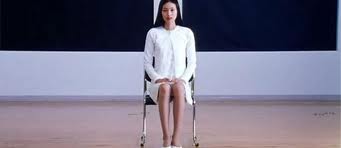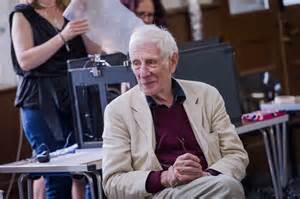

It’s about that time when you start to think very seriously about getting back to school and your theatre program or club. It may be college, prep, or high school, but the fact is no matter where you are bound this fall, you’ll be sitting in a classroom once again.
If you’re in a BA, BFA or MFA theatre training program, you’ll be taking plenty of classes in your chosen field, as well as being involved in productions. High school or prep school students may also be taking classes, and will most likely be focused on production work.
If you want to work in the theatre, one thing you will discover is that so much of it is about you taking individual initiative to improve yourself. You’ll want to do so throughout your life. Here are five things that you should do this academic year to get to a new level.
Read 1 Extra Play a Month

You are probably reading plenty of plays already. But these are assigned in some manner. Take time to read one additional play each month. Do so in an attempt to expand your knowledge base of theatre literature.
That means if you’re weak on the classics then put something from the Greek, French Neo-Classical, Spanish Golden Age, and English Renaissance on your reading list. Mix it up and read some newer plays, as well as making sure you read some of those cornerstone playwrights, such as Ibsen, Chekhov, Shaw, and Strindberg.
One additional tip – form a play-reading group that gets together to simply read a selected play aloud and discuss it. It’ll be a four-hour commitment each month and well worth it.
Go Outside Your Comfort Zone

Take a class, work in an area, learn a new skill for the sake of gaining some knowledge in an area about which you know nothing or very little. This may be something that you do for credit, pursue on your own, or learn in a workshop.
But it has to be outside your comfort and/or knowledge zone. As an example, if you’re a performer, then most performance classes are out. Unless, as an example, you’re an actor who has never taken a dance class. Then that’s within the spirit of this challenge. Your experience may include working on some technical aspect of a show; taking a class in history, anthropology, criminal justice, physics, or another discipline; learning a skill such as juggling, sewing, carpentry; or writing a short play, painting or drawing; or creating jewelry, pottery, or bookmarks.
Overall, whatever you choose, it’s best if it is something not associated with the theatre. Why? Because no matter what it is it can, someday, be useful to you in your chosen field, and this is a great way to simply enjoy some self-improvement activity for the sake of gaining knowledge.
Repeat a Theatre Exercise

So many times you’ll hear someone say in a class, “I’ve done that exercise before.” The implication being, “Why should I do it again?” Consider physical exercise, don’t you repeat those actions and tasks? Why do you do so? Because each time you do, you reach a new level of physical endurance and/or strength and awareness.
Repeating an acting, playwriting, design, directing or other exercise has the same effect. Take one exercise and repeat it on a weekly basis for three months. Record the results each time. At the end of three months evaluate what you have learned and how you have grown from engaging in that exercise.
Contact a Professional

Take some time to contact someone in your field who is working in it professionally. It may be someone at your school who is also busy in the professional theatre, someone at a local regional theatre, or another person. In doing so be professional, introducing who you are, what your area of interest is, and your present level of training and school you’re attending.
Most professionals will take some time to talk to you, answer your questions, and give you some insights. I have perfect strangers contact me through this blog about directing, playwriting, and other aspects of the theatre and enjoy answering their questions.
Read Letters to a Young Poet

If you have not read Rainer Maria Rilke’s Letters to a Young Poet, then you have to do so. If you have read it, then read it again. These letters offer amazing insights into life, art, love, and more. Too often when we are focused on becoming a professional we forget why we got into the theatre in the first place.
This collection of letters offers us a firm answer to the question, “Why am I doing this?” If this book of letters does not touch you in some manner, then so be it. But every artist and person working in the theatre should read it at least once.
Enjoy Your Education
As the academic year looms, hopefully you’re excited and getting geared up. It’s important to use your time in school productively, because once you’re out, things get a lot more hectic. Once you graduate, you still need to work constantly towards self-improvement, but there’s less time to do so. Have a great school year!

 Random Item
Random Item